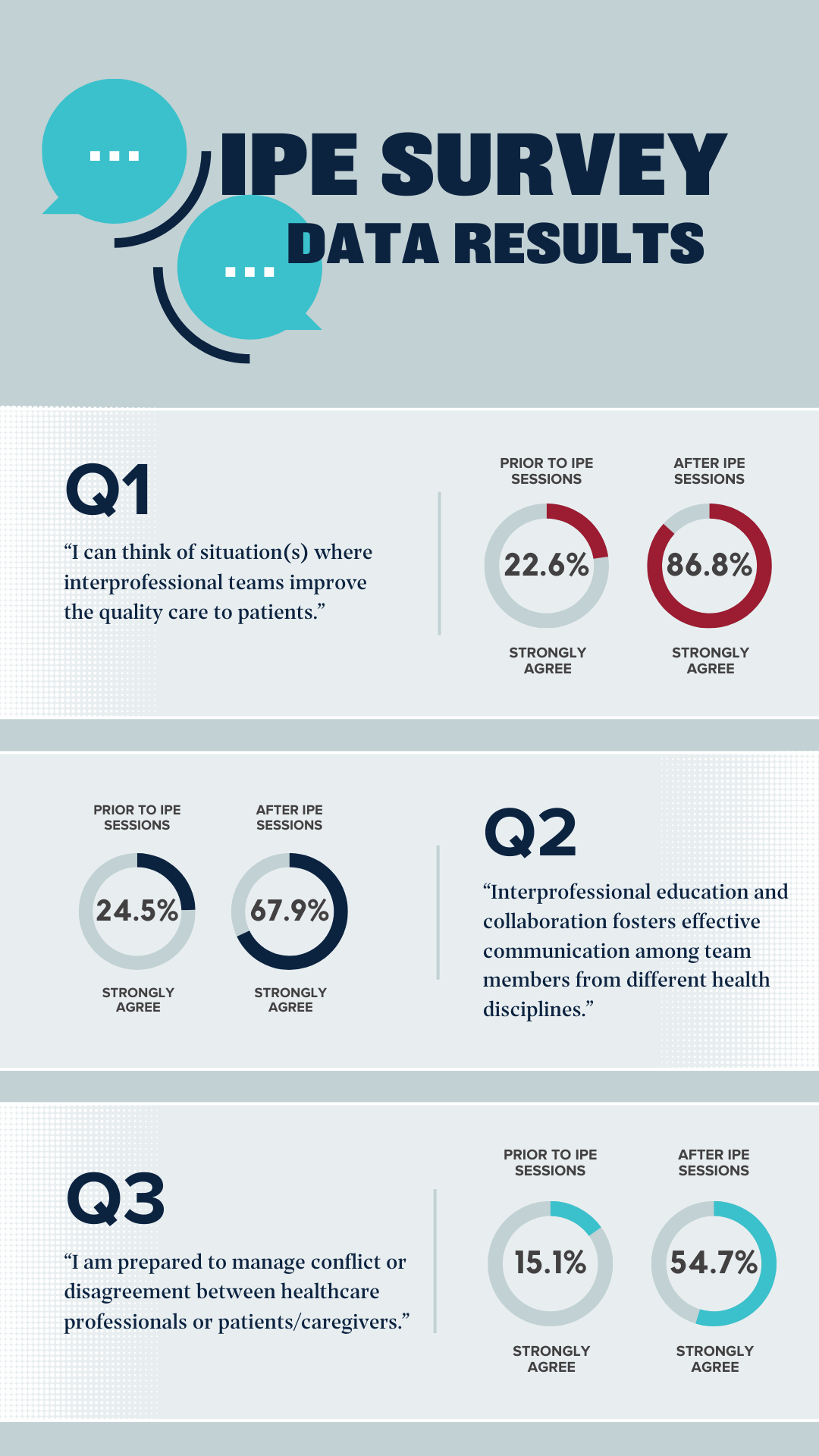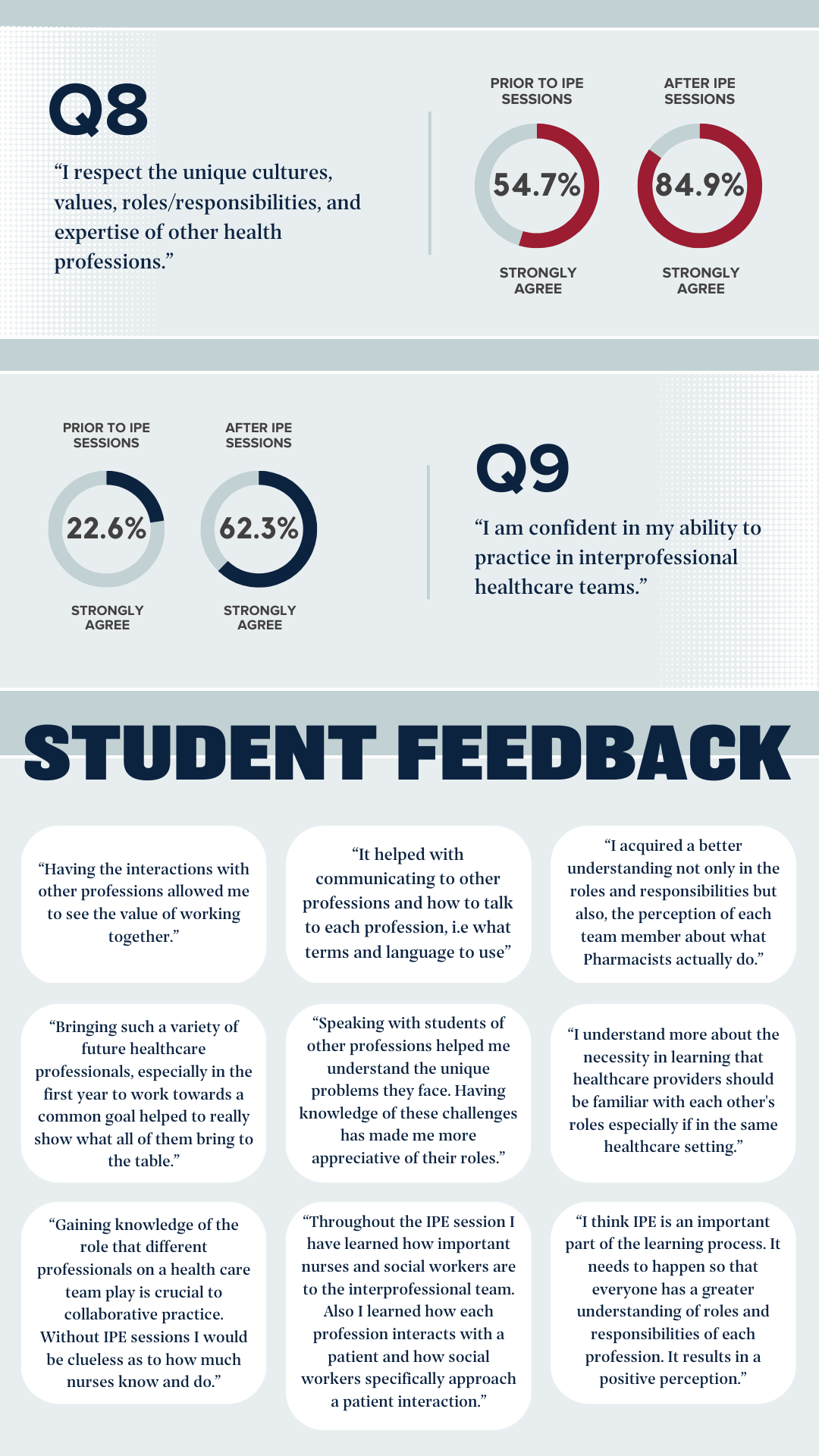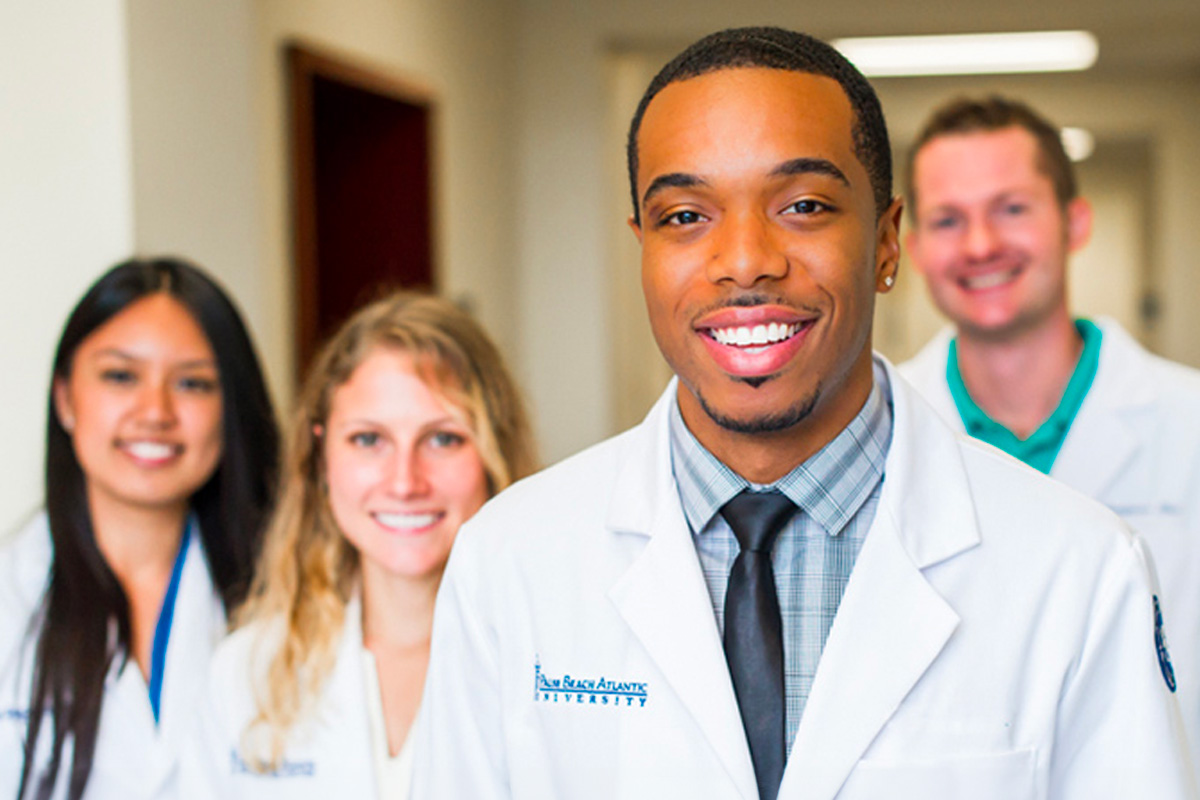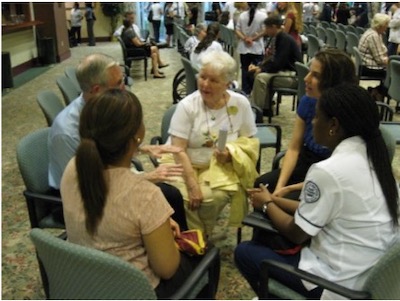Vision:
Transform healthcare by learning together and developing the next generation of servant leaders as agents of change
Mission:
Equip students with the core competencies for collaborative practice to improve individual and population health outcomes through evidence-based tools and pedagogy, as well as community partnerships
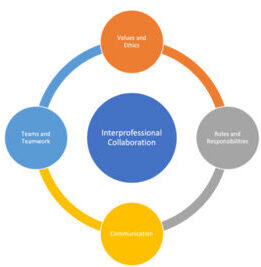 Goal:
Goal:
Develop and educate students with the knowledge, skills, attitudes, and behaviors for collaborative practice
Our Collaborators
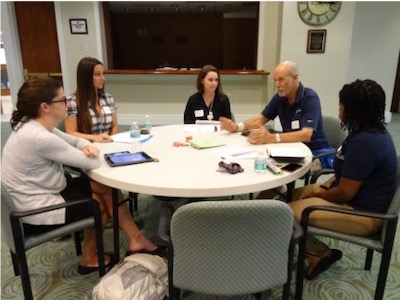 Palm Beach Atlantic University
Palm Beach Atlantic University
- Lloyd L. Gregory School of Pharmacy
- School of Nursing
Florida Atlantic University
- Charles E. Schmidt College of Medicine
- Christine E. Lynn College of Nursing,
- College for Design and Social Inquiry’s School of Social Work
- West Palm Beach Veterans Affairs Medical Center
- TrustBridge
- Palm Beach Fire Rescue
Palm Beach Atlantic University is one of the founding members of the Florida IPE consortium which comprises of USF Office of Interprofessional Education, UF Office of Interprofessional Education, FAU Office of Interprofessional Education& Practice, and NSU Center for Interprofessional Education& Practice. Together, the consortium is dedicated to work collaboratively to promote the value, evidence, and importance of interprofessional education and interprofessional practice.
Our Program
Senior Aging Geriatrics Education (SAGE) visit: Throughout the year, student teams meet with a volunteer older person in the community to take a background history, conduct a series of geriatric assessments, and to assess home safety risks. The sessions require students to acquire knowledge and develop skills while also providing an opportunity for students to learn about healthy aging.
- Roles & Responsibilities for Collaborative Practice: Students will understand their own roles and responsibilities and those of other health professionals on an interprofessional team.
- Interprofessional Communication: Students will learn effective interprofessional communication skills and conflict management through TeamSTEPPS® curriculum, using evidence-based, communication and teamwork tools.
- Interprofessional Hospice Simulation: Students participate in an interprofessional care team simulation for a hospice patient. Students learn about the various hospice team member roles, apply team dynamics, and evaluate the ethics involved in end-of-life care in order to achieve patient-centered goals.
- This session has won a national award as it is geared towards understanding the various roles and responsibilities and ethics involved with caring for hospice patients and includes community partners from TrustBridge as well as the West Palm Beach Veterans Affairs Medical Center.
- Interprofessional Ethics in Healthcare: Students learn about the ethics and values that underpin interprofessional practice through a series of case simulations dealing with genuine ethical dilemmas in healthcare.
- First Do No Pharm: Students learn about the essentials of medication management in patients experiencing polypharmacy and will participate in an interprofessional transitions of care patient case involving medication reconciliation. As part of this learning experience, students fill their own “pillbox” and simulate the patient experience of taking daily medications for a week.
Clinical Learning Environments (APPEs)
More Information
